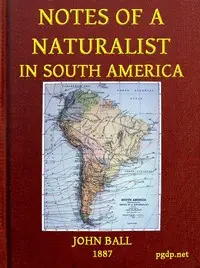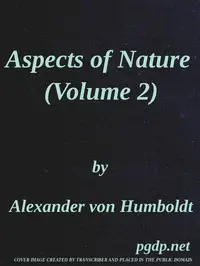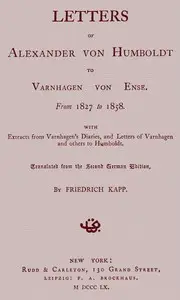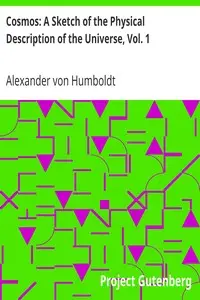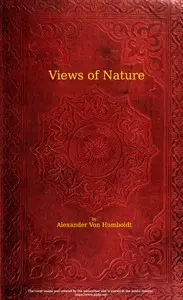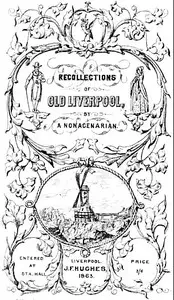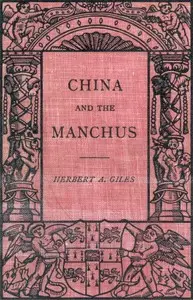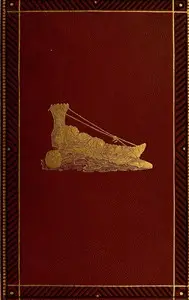"Personal Narrative of Travels to the Equinoctial Regions of America" by Alexander von Humboldt is a detailed story of a scientific journey through South America in the early 1800s. It follows Humboldt and his friend Bonpland as they explore the tropical areas, carefully recording the plants, landscapes, and physical features they find. The book starts by explaining Humboldt's strong wish to explore far-off corners of the world, describing how he got ready, collected his tools, and left Spain, noting the mood of the world at that time. It tells about their first stop at the Canary Islands, where Humboldt planned to climb Teyde Peak, and the excitement of starting a scientific adventure. Through this opening, the book shows both how difficult exploring can be and Humboldt's strong love for nature and commitment to growing scientific knowledge through travel.

Personal Narrative of Travels to the Equinoctial Regions of America, During the Year 1799-1804 — Volume 1
By Alexander von Humboldt
Embark on a thrilling scientific expedition to South America, where a passionate explorer braves the unknown to document the wonders of the natural world.
Summary
About the AuthorFriedrich Wilhelm Heinrich Alexander von Humboldt was a German polymath, geographer, naturalist, explorer, and proponent of Romantic philosophy and science. He was the younger brother of the Prussian minister, philosopher, and linguist Wilhelm von Humboldt (1767–1835). Humboldt's quantitative work on botanical geography laid the foundation for the field of biogeography, while his advocacy of long-term systematic geophysical measurement pioneered modern geomagnetic and meteorological monitoring. Humboldt and Carl Ritter are both regarded as the founders of modern geography as they established it as an independent scientific discipline.
Friedrich Wilhelm Heinrich Alexander von Humboldt was a German polymath, geographer, naturalist, explorer, and proponent of Romantic philosophy and science. He was the younger brother of the Prussian minister, philosopher, and linguist Wilhelm von Humboldt (1767–1835). Humboldt's quantitative work on botanical geography laid the foundation for the field of biogeography, while his advocacy of long-term systematic geophysical measurement pioneered modern geomagnetic and meteorological monitoring. Humboldt and Carl Ritter are both regarded as the founders of modern geography as they established it as an independent scientific discipline.







